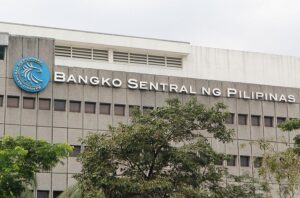The Bangko Sentral ng Pilipinas (BSP) aims to significantly reduce the reserve requirement (RRR) for banks this year, with the potential for further cuts in 2025 to inject liquidity into the financial system.
BSP Governor Eli Remolona announced the upcoming RRR reduction in a press conference on Wednesday, September 18, as he highlighted the aim to lower the RRR from the current 9.5 percent to a target of 5 percent.
“We will reduce the reserve requirement substantially this year, and then there may be further reductions by next year,” Remolona said.
“There’s a funny dynamic that’s going on with the banks on a reduction of the reserve requirement. They’re saying if you do reduce it, we’ll do this other thing for you, reduce transaction costs on payments, for example,” he added.
He explained that the BSP is working to balance the reduction in reserve requirements with potential benefits for banks, such as lower transaction costs.
The central bank’s decision to cut the RRR is expected to inject additional liquidity into the financial system. This could stimulate economic activity by encouraging banks to lend more to businesses and consumers.
Remolona added that the BSP intends to use its facilities, such the BSP bills it distributes every Friday with two tenors—28-day offers and 56-day offers—to absorb the increase in liquidity.
The BSP’s most recent data indicates that domestic liquidity, or M3, the financial system’s broadest measure of money, increased by 7.2 percent year on year to P17.5 trillion in July.
“In terms of liquidity, the reserves for the reserve requirement are on our balance sheet on the same side of the liabilities, so if we cut that, we cut the reserve requirement, and that part will go down, and we want to compensate for that,” Remolona said.
“That’s more liquidity for the banking system, and we want to compensate for that, so that’s more liquidity for the banking system. We want to compensate for that by absorbing some of the liquidity, which will go into some other part of our balance sheet,” he added.
However, BSP Assistant Governor Zeno Ronald Abenoja noted that the impact on government securities (GS) may be mixed in the short term.
“If and when the reserve requirement is adjusted downwards, we are hoping that this additional liquidity will be deployed to help expand productive economic activities,” Abenoja said.
“However, that will take time. So, some of it will be deployed by banks in various financial markets, including GS, equity,” he added.
Abenoja added that the volume of GS operations may initially increase as banks adjust to the increased liquidity. Over time, however, the impact on GS markets will depend on how banks choose to allocate the additional funds. (TCSP)




